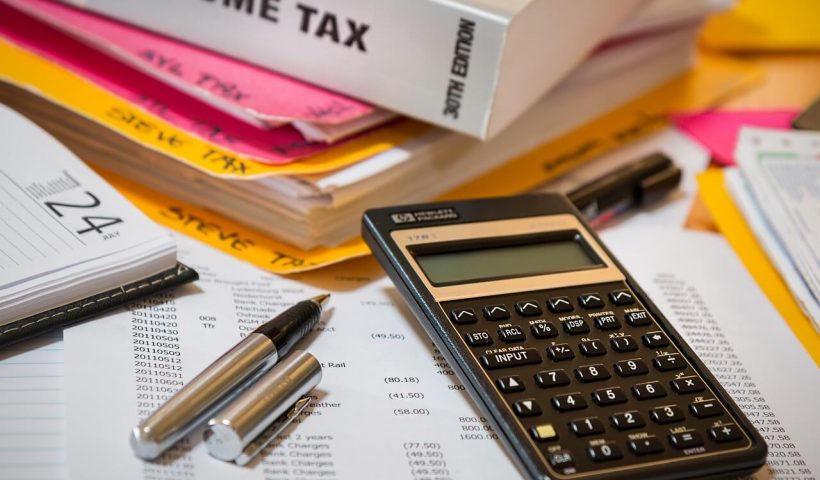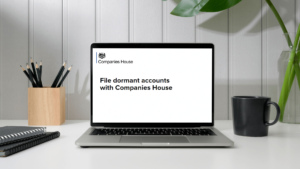Your guide to self-Assessment tax return

Get the deadlines right
Running your own business and becoming self-employed can be really exciting and rewarding, but as a business owner you also have your responsibilities. Some of them, if not taken seriously, can get you into serious trouble.
One of these things that every self-employed person should know about and stick to is the self-assessment tax return deadlines. If you don’t complete your self-assessment on time you will receive a fine and we all know that money is important when you’re running a business.
So when should you file your self-assessment?
➡️ If you file paper tax returns, the submission deadline is 31 October following the end of the tax year.
➡️ If you do your self-assessment online, the submission deadline is 31 January following the end of the tax year.
That’s not the whole story about the deadlines, because apart from submitting your tax return you also have to pay the tax. There are two deadlines for paying your self-assessment tax bill and these are:
➡️ 31 January- by this date you have to make your balancing payment and your first payment on account.
➡️ 31 July- this is the deadline for your second payment on account.
The mystery of balancing payments and payments on account is explained in more details by our Oxford accountants in a separate article.
Create an online account with HMRC
From the section above you know that submitting your tax return online gives you a longer submission deadline. To be able to do online self-assessments, you need an online access to the Government Gateway but before that make sure you first register for a self-assessment.
When you register for a self-assessment, you will receive a user ID for the Government Gateway account and also a letter with an activation code. As soon as you activate your account, you can start preparing your self-assessment.
make sure you claim for everything you can claim
Each expense that you claim on your tax return reduces your profit and thus the tax you have to pay, so making sure you include all your allowable business expenses is important and beneficial. But what business expenses can you claim?
The general rule is that you can claim costs that are wholly and exclusively for business purposes. What does it mean in practice? For example, if you purchase printing paper but you use it both for business and personal printing, only a business proportion is an allowable business expense and can go on your self-assessment tax return.
What business expenses you can claim will depend on a type of business you run but some of the typical small business expenses include:
-telephone costs
-internet
-stationary
-business insurance
-advertising
-office costs
When you’re self-employed, there’s a big chance that you will pay for things that you will be using both privately and for your business. As mentioned above, on your self-assessment tax return as your cost you can only include a business element. This can be sometimes quite tricky to calculate or just too time consuming, that’s why HMRC offeres something called simplified expenses.
Check our other article for more details about simplified expenses for self-employed.
Keep your business records
It’s a legal requirement to keep business records if you’re self-employed, so make sure you have some systems and processes in place that will let you fulfil your duty towards HMRC. You must keep your records for at least 5 years after the 31 January submission deadline. If you’re VAT registered, you must keep them for at least 6 years.
What business records should you keep if you’re self-employed? Everything that is business related but not only. The records include small receipts you get in local shops, all your sales invoices you raise, bank statements, toll rolls and bank slips, anything relating to your personal income, any grants you’ve received, your PAYE records like P60 for example, and chequebook stubs.
Are you wondering how you’re going to keep all of that and how much renting a storage space will cost you? The good news is you don’t need to keep paper records for HMRC. Digital records are perfectly fine. So anything saved on your computer or a photo of a receipt is as good as a paper copy. However, remember to have some backup solution in place if you store your records electronically. Your computer can break down any time…
Ask a specialist for advice
People ask this question all the time- Do I need an accountant if I’m self-employed?– so we’re going to answer it. No, you don’t. There’s no legal requirement to use an accountant to submit your self-assessment tax return. And to be honest, HMRC doesn’t care about it because at the end of the day it’s your return and you’re responsible for it.
But whether it’s worth or wise to have an accountant it’s a completely different question and here the answer is in certain cases definitely yes.
When should you hire an accountant? Some scenarios include:
➡️ When you have no idea what you’re doing because mistakes can cost you lots of money.
➡️ When your situation is more complicated. Self-assessments aren’t always simple and this depends on individual circumstances. You may not even know that you’ve been doing something wrong until you get an accountant. The main tax return form isn’t extremely long but have you ever seen the supplementary pages?
➡️ When you have no time at all. This is risky because you can miss the deadlines and this means penalties, so if you want to avoid this, hire an accountant.
➡️ When you both have no time and no knowledge.
How much is an accountant for a self-employed person? That’s another popular question that always follows and we’re really sorry but we can’t provide one price because there are many people visiting this website and their situations will be different to yours. This can depend on a few factors, for example:
-your situation complexity
-whether your records are already organised or need sorting
-volume of your transactions
How to make payments for self-Employment
You’ve calculated your tax liability, submitted your self-assessment tax return and now the most exciting part is coming which is paying your self-employment tax. Hurrah! Well, not really exciting, we’re just joking, but unfortunately you have to pay it.
You can make payments for self-employment in different ways:
- Direct Debit
- BACS
- Cheque
- Faster Payments
- CHAPS
- Online using a debit or corporate credit card
- By going to your bank or building society
Each of the above methods has a different processing time, so make sure you plan paying your tax earlier, so the payment can reach HMRC before the self-assessment payment deadlines.
Who needs to file a self-Assessment tax return
It’s not true that a self-assessment tax return has to be only submitted by a self-employed person. If you’re a director in a company and receive dividends you may also be required to file a self-assessment tax return. This type of a tax return also applies to partners that are in a business partnership.
Other types of income that can require you to file a self-assessment are foreign income, income from savings, investments, renting a property or income from tips and commissions. Another less common item is capital gains, for example, if you disposed of an antique and made a profit from the disposal, then you may be liable to a capital gains charge. A disposal can be classified as anything from a sale, giving the item away, or even receiving insurance proceeds when something has been damaged.
Make sure you declare all the income you should declare because not doing it is a criminal offence and a tax evasion can cost you much more than if you simply declared your income and paid your taxes in the first place.
HMRC doesn’t simply sit and wait for people to be honest with it. It actively searches and analyses all the information about businesses and individuals and it has its ways of finding out who is paying their taxes and who isn’t and should.
If you’re a sole trader and looking for an accountant, contact our Oxford office for a friendly chat about your needs.
More Articles
Categories

Your Accountant in Oxford
Oxford Office
Joanna Bookkeeping
The Wheelhouse Angel Court
First Floor, Angel Court
81 St Clements St
Oxford
OX4 1AW
Connect
joanna@joannabookkeeping.co.uk
01865 591952





